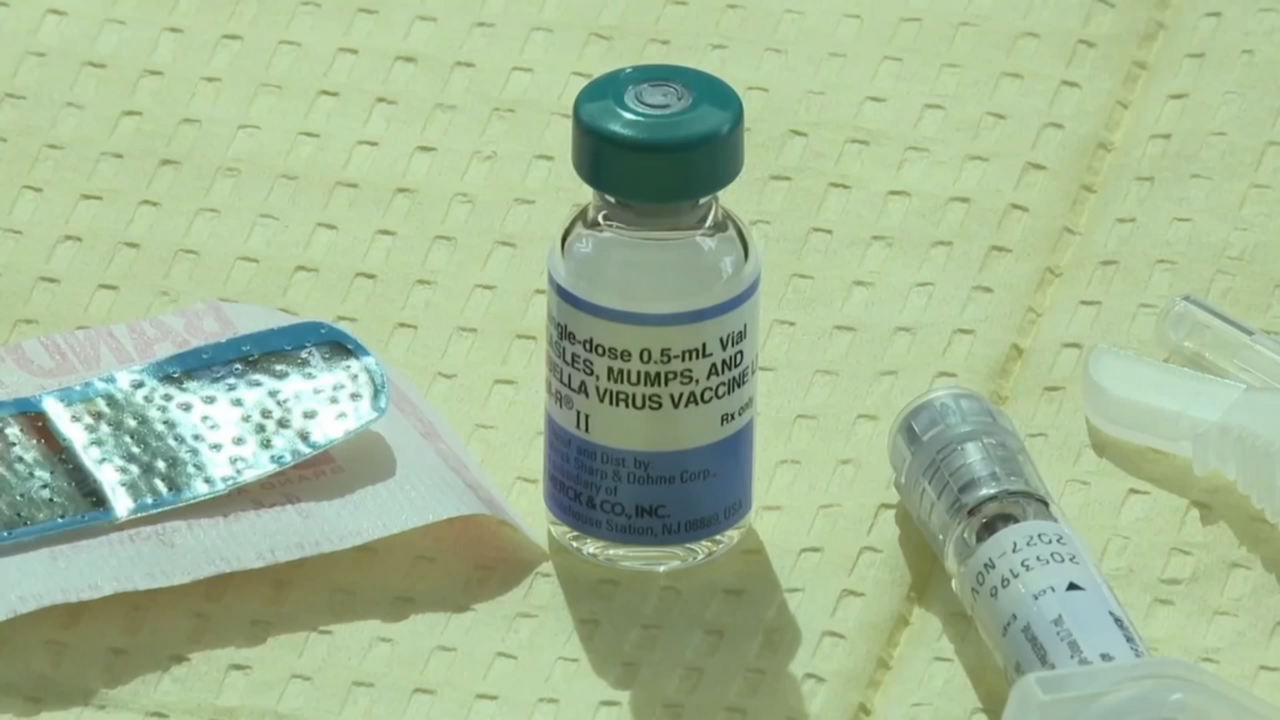SALT LAKE CITY — As measles cases rise in Utah, doctors and local health departments encourage vaccinations to mitigate the spread.
According to the Centers for Disease Control and Prevention, the United States achieved its measles elimination status in 2000, which meant there was no continuous spread of the disease for more than 12 months.
But now, that could change.
The Utah Department of Health and Human Services has reported 87 cases of measles, and most of those cases are in Washington County. 18 people were diagnosed with the virus in the last three weeks.
The recommendation from doctors and the health department is to get vaccinated, particularly at ages 12 months and a second dose at kindergarten age.
Dr. Lu Lu Waterhouse, the Department Chair of Pediatrics for the Medical Executive Committee at St. Mark’s Hospital, said she understands the fears that parents have with vaccines but this one is tried and true with many years of research behind it.
“It is a well-established vaccine there’s been dozens of studies on the safety and efficacy and it’s been around for years,” she said. “While it’s scary to watch your child getting an injection, the amount of antigens in the vaccines is a drop in the bucket compared to what children are exposed to on a daily basis.”
She said that for infants who are breastfeeding, they have some natural antibodies.
“If the mom is vaccinated against measles, then she’s transmitting the antibodies through her breast milk up until about 6 months, after that they start waning,” she said.
The vaccine comes in a trio for measles, mumps and rubella.
“It’s three different things, but again it’s a drop in terms of the amount of germs cells and antigens that are in there,” Waterhouse said.
She said back in the 70s and 80s, there were many cases, but once people started getting vaccinated
“The vaccine came out many years ago,” she said. “So it was widely accepted and provided to people, so we actually had really good immunity or something called herd immunity, where over 95% of the population were protected and vaccinated and that helps protect the spread of measles.”
Throughout her career, she said she hasn’t seen an active case of measles in her office.
“About 92% of kindergarteners are vaccinated so it’s still high even thought there’s a lot of talk about no vaccinating, but that 92% isn’t enough for herd immunity,” she said.
Waterhouse said it is a very contagious disease, so if someone is feeling sick, they must take precautions before coming to the hospital or clinic. It’s important to call ahead and let the hospital get suited up or even get treated from their car.
The symptoms include fever, sore throat, runny nose, a rash that begins at the hairline and spreads down the body.
“I became a pediatrician because I love children and I want to keep them healthy and safe,” she said. “We believe that vaccines are the only way to prevent measles.”




